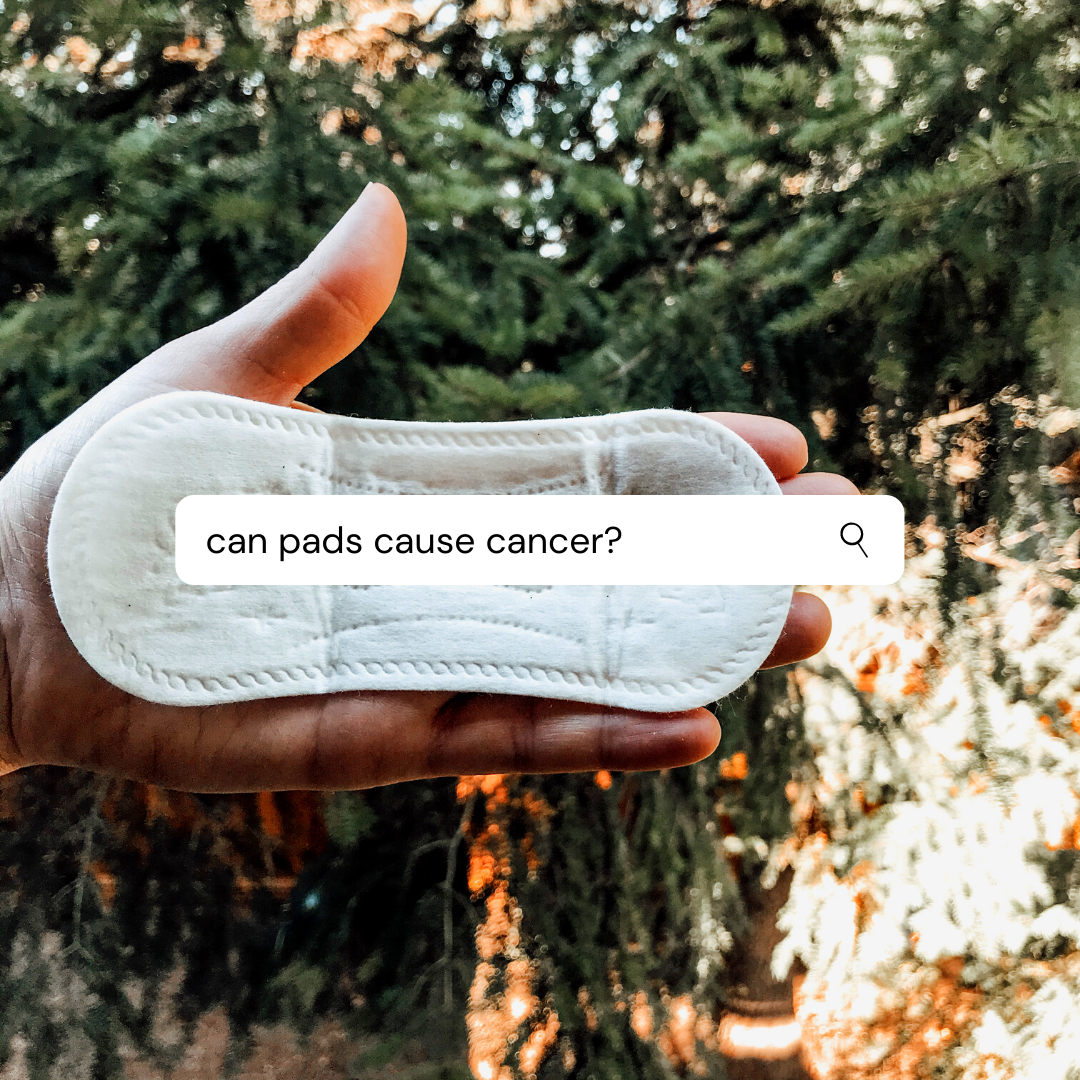
Have you heard that you should switch to organic pads because plastic and harsh chemicals in conventional (plastic) pads can cause cancer?
This rumor has been shared hundreds (if not thousands) of times on social media, likely because the fear of health risks is one of the main reasons people switch from traditional pads to organic pads—and it makes for compelling marketing!
I am not suggesting that organic brands scare people to sell their products, but I am suggesting we separate fact from fear-based fiction.
So, let's break some magnified myths! Here’s the evidence-based facts to help you make an educated decision about buying the period pads that are right for you.
Myth #1: The harsh chemicals and plastic used in traditional period pads cause cervical cancer
According to Senior OBG Dr. Ragini Agrawal, there is no scientific data or research that proves pads cause cervical cancer. Cancer is a complex phenomenon that can be co-related to multiple internal and external factors, but that does not mean that each factor on its own causes cancer. The fact is, conventional plastic pads on their own do not cause cervical or any other vulva related cancers.
Myth #2: Since traditional pads are FDA approved, they’re entirely safe
While in the States, a pad is considered a class 1 device that is easy to pass FDA approval, in Canada, a pad is not considered a medical device and so it is not regulated by Health Canada. This means pad manufacturers don’t have to follow any safety or quality regulation guidelines at all. This doesn’t mean manufacturers don’t care about consumer safety, but sometimes cheaper alternatives come with the cost of using cheaper material that is not in fact healthy or safe for your reproductive organs, especially highly sensitive areas like the vulva and vagina.
Myth #3: You can wear a pad that is designed for heavy flow for as long as eight to 12 hours
While it’s technically true pads can stand up to that length of time, the fact is doing so comes with a health risk. Using a pad for an extended period increases the temperature of the area, changes vaginal pH, and maintenance of humidity, which can favor bacterial and fungus growth and, therefore, vulvovaginal infections, itching, fissuring, swelling, and hyperemia. Using a single pad for a maximum of three to four hours will mitigate this risk."
Myth #4: Because every major brand uses material that has been pre-assessed for health safety, any pad you choose is safe
Even approved materials can be problematic. Depending on how they’re used, plastic top sheets and artificial adhesives can increase the risk of vulva-vaginal infections and contact dermatitis.
1. Plastic Top Sheet
By design, plastic is not porous and breathable.The friction that occurs when the top sheet comes into contact with skin releases fumes that can’t pass through the pad. Known as Acta dermato-venereologica, these fumes can increase the vulvar temperature, pH, and humidity that are optimal conditions for aerobic microbial growth,which cause vulvovaginal infections, itching, fissuring, swelling, and hyperemia.
2. Artificial Adhesives
Traditional pads use artificial adhesives to keep the pad intact, which like the plastic top sheet, also has direct contact with the skin. According to the Australian Journal of Dermatology, these adhesives include (meth)acrylates, nine Iodo-Propynyl Butyl-Carbamate, fragrances, and formaldehyde allergens, which have been proven to cause contact dermatitis.
Pads are not equally safe
Not all pads are created equal or are equally safe. Conventional menstrual product brands have successfully marketed the pad’s blood absorbing and holding capacity. However, other critical functionalities that are equally if not more important have been largely missing from the conversation, such as breathability, distribution efficacy, and rash-resistance efficiency.
We encourage you to make a holistic decision when choosing pads, considering all the functions of the pad to ensure vaginal health, while providing effective period coverage.
At joni, we believe in empowering you with completely transparent and evidence-based information so you can make the best decision about your period needs. You have the right to know about what’s in your pad and that’s why we give you the whole story about each raw material used in our pads here.
ABOUT THE AUTHOR

Jayesh Vekariya, joni co-founder, holds a master's in pharmacology with a research interest in endocrine hormones and reproductive health. He has nine years of experience in the pharmaceutical industry launching more than 20 medicine brands and medical devices for companies ranging from startups to fortune 500 leaders. He has published theses and articles with the International Journal of Advanced Research, conducting pre-clinical trials on “Cytoprotective influence of Ethanolic Stem extract of Tinospora Cardifolia on the inflammatory bowel disease”, “Antidiabetic studies of polyherbal formulations of Cyperus Rotundus in obese diabetic rats”, and “Macro-economic factors impacting investment in the healthcare industry in BRIC nations”. He is also an MBA in Entrepreneurship holder with a passion for social entrepreneurship and strategy.
